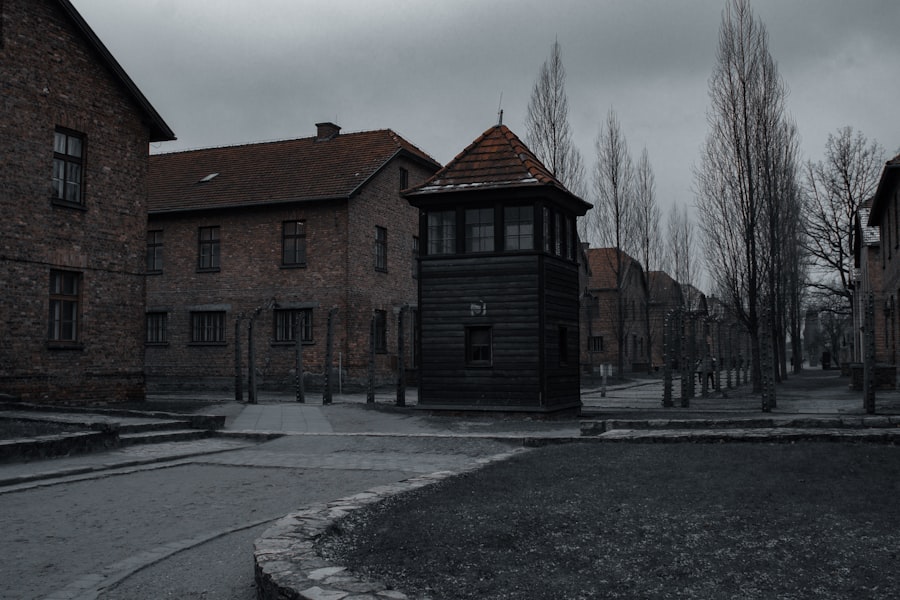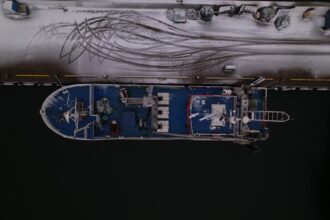The shadowy world of espionage during World War II was marked by a complex interplay of deception, intelligence gathering, and the art of disguise. Among the most intriguing aspects of this clandestine warfare were the Nazi spies who operated under the guise of ordinary civilians. These operatives, often blending seamlessly into the fabric of society, played a pivotal role in the broader strategy of the Third Reich.
Their ability to masquerade as everyday individuals allowed them to gather critical intelligence, sabotage enemy operations, and sow discord among adversaries. The phenomenon of spies in civilian disguise not only highlights the lengths to which nations would go to secure an advantage but also raises questions about identity, loyalty, and morality in times of war. The use of civilian disguise by Nazi spies was not merely a tactic; it was a calculated strategy that reflected the regime’s understanding of human psychology and social dynamics.
By embedding themselves within communities, these spies could observe, report, and act without drawing attention to their true intentions. This article delves into the multifaceted role of these spies, exploring their methods, notable figures, and the broader implications of their actions during one of history’s most tumultuous periods.
Key Takeaways
- Nazi spies used civilian disguise to infiltrate enemy territory and gather intelligence during World War II.
- Spies played a crucial role in World War II by providing valuable information to their respective sides.
- Civilian disguise was important for Nazi spies to blend in and avoid detection while carrying out their espionage activities.
- Nazi spies used various methods of infiltration and intelligence gathering, including forging documents and establishing fake identities.
- Famous Nazi spies such as Wilhelm Canaris and Juan Pujol Garcia successfully operated in civilian disguise, facing significant dangers and risks.
The Role of Spies in World War II
Spies played an indispensable role in World War II, serving as the eyes and ears of military operations on both sides of the conflict. Their contributions ranged from gathering vital information about enemy troop movements to intercepting communications that could alter the course of battles. The intelligence provided by spies often determined strategic decisions made by military leaders, underscoring the importance of espionage in wartime.
In this context, Nazi spies were particularly notorious for their ability to infiltrate enemy territories and gather intelligence that could be used to further the goals of the Third Reich. The effectiveness of these spies was amplified by the chaotic nature of war, where misinformation and deception were rampant.
This allowed them to exploit weaknesses in enemy defenses and capitalize on opportunities that might otherwise have gone unnoticed. As a result, the role of spies became increasingly vital as the war progressed, with both sides recognizing that information could be as powerful as weaponry on the battlefield.
The Importance of Civilian Disguise for Nazi Spies

Civilian disguise was a cornerstone of Nazi espionage strategy, enabling spies to operate undetected within enemy territories. By adopting the appearance and behavior of ordinary citizens, these operatives could gather intelligence without raising suspicion. This tactic was particularly effective in urban environments where anonymity was more easily achieved.
The ability to blend into civilian life allowed Nazi spies to observe daily routines, identify key figures, and assess vulnerabilities that could be exploited for strategic advantage. Moreover, civilian disguise provided a layer of protection for spies operating in hostile environments. When dressed as civilians, they were less likely to attract attention from law enforcement or military personnel who might be on the lookout for foreign agents.
This camouflage not only facilitated intelligence gathering but also allowed spies to establish networks of informants and collaborators who could assist in their missions. The importance of civilian disguise cannot be overstated; it was a critical element that enabled Nazi spies to operate effectively and achieve their objectives.
Methods of Infiltration and Gathering Intelligence
| Method | Description |
|---|---|
| Human Intelligence (HUMINT) | Obtaining information from human sources through direct contact or communication. |
| Signals Intelligence (SIGINT) | Intercepting and analyzing communication signals, such as radio or digital transmissions. |
| Open-Source Intelligence (OSINT) | Collecting and analyzing information from publicly available sources, such as the internet or media. |
| Imagery Intelligence (IMINT) | Gathering intelligence from visual images, such as satellite or aerial photographs. |
| Cyber Intelligence | Collecting information from digital sources, such as computer networks or online platforms. |
Nazi spies employed a variety of methods to infiltrate enemy territories and gather intelligence. One common approach involved establishing false identities and creating backstories that would allow them to integrate into local communities. This often required extensive preparation, including learning local languages, customs, and social norms to avoid detection.
By presenting themselves as harmless individuals—such as merchants, laborers, or even refugees—these spies could move freely and gather information without arousing suspicion. In addition to personal disguise, Nazi spies utilized technology and communication methods to enhance their intelligence-gathering capabilities. They often relied on coded messages and clandestine communication channels to relay information back to their superiors.
This combination of personal disguise and technological innovation allowed them to operate effectively in a variety of environments, from bustling cities to remote rural areas.
Famous Nazi Spies and Their Civilian Disguises
Throughout World War II, several Nazi spies gained notoriety for their daring exploits and effective use of civilian disguise. One such figure was Richard Sorge, a German journalist who operated in Japan under the guise of a foreign correspondent. Sorge’s ability to blend into Japanese society allowed him to gather crucial intelligence about Japanese intentions regarding the Soviet Union.
His reports provided invaluable insights that influenced Soviet military strategy during critical moments in the war. Another notable spy was Elsbeth Schragmüller, who worked as a courier for the Nazis while posing as a simple housewife in France. Her ability to navigate the complexities of occupied territory while maintaining her cover allowed her to relay important information back to her handlers.
Schragmüller’s story exemplifies how ordinary individuals could be transformed into agents of espionage through careful planning and execution. These examples illustrate not only the effectiveness of civilian disguise but also the diverse backgrounds and skills that contributed to the success of Nazi espionage efforts.
The Dangers and Risks Faced by Nazi Spies in Civilian Disguise

Despite their advantages, Nazi spies operating in civilian disguise faced significant dangers and risks. The very nature of espionage meant that they were constantly at risk of exposure, capture, or even execution if discovered. The stakes were particularly high in occupied territories where local populations were often hostile or suspicious of foreign agents.
A single misstep could lead to dire consequences not only for the spy but also for those who assisted them. Moreover, the psychological toll of living a double life weighed heavily on many spies. The constant need for vigilance and deception created an environment fraught with anxiety and uncertainty.
Many spies struggled with feelings of isolation as they navigated their dual identities, often unable to confide in anyone about their true purpose. This internal conflict added another layer of complexity to their missions, highlighting the personal sacrifices made by those who engaged in espionage during this tumultuous period.
Counterintelligence Efforts to Uncover Nazi Spies in Civilian Disguise
As Nazi spies infiltrated enemy territories, counterintelligence efforts intensified in response. Allied forces recognized the threat posed by these operatives and implemented various strategies to uncover them. Intelligence agencies employed a range of techniques, including surveillance, informant networks, and psychological operations aimed at sowing distrust among potential collaborators.
These efforts were crucial in identifying and neutralizing threats posed by Nazi spies operating under civilian disguises. One notable counterintelligence operation was conducted by British intelligence during World War
The establishment of MI5’s “Double-Cross System” allowed British agents to turn captured German spies into double agents who would feed misinformation back to their handlers. This innovative approach not only helped uncover existing spies but also created confusion within German intelligence networks. The ongoing battle between espionage and counterintelligence underscored the high stakes involved in this covert warfare.
The Legacy of Nazi Spies in Civilian Disguise
The legacy of Nazi spies operating in civilian disguise is multifaceted and complex. On one hand, their actions contributed significantly to the war effort by providing valuable intelligence that influenced military strategies and outcomes. On the other hand, their methods raised ethical questions about deception and loyalty during wartime.
The use of civilian disguise blurred the lines between friend and foe, complicating relationships within occupied territories and leaving lasting scars on communities affected by espionage activities. In post-war analyses, historians have examined the impact of these spies on both military operations and civilian life during World War
Ethical and Moral Considerations of Spying in Civilian Disguise
The ethical implications surrounding espionage—particularly when conducted under civilian disguise—are profound and complex. Spying inherently involves deception, manipulation, and betrayal, raising questions about loyalty and morality during times of conflict. For many individuals involved in espionage, the justification for their actions often hinged on national loyalty or ideological beliefs; however, this does not negate the moral dilemmas they faced.
The use of civilian disguise further complicates these ethical considerations. By masquerading as ordinary citizens, spies risked undermining trust within communities and contributing to an atmosphere of paranoia and suspicion. The consequences of their actions extended beyond military objectives; they affected innocent lives caught up in the web of espionage activities.
As such, discussions surrounding the ethics of spying continue to evolve as societies reflect on historical events and consider contemporary issues related to surveillance and privacy.
The Impact of Nazi Spies in Civilian Disguise on History
The impact of Nazi spies operating in civilian disguise on history is significant and far-reaching. Their actions not only influenced military strategies during World War II but also shaped post-war geopolitics and international relations. The intelligence gathered by these operatives contributed to pivotal moments in history—such as D-Day—and altered the course of battles that defined nations’ fates.
Moreover, the legacy of these spies has had lasting implications for modern intelligence practices. The lessons learned from their successes and failures continue to inform contemporary espionage strategies employed by nations around the world. As technology advances and global conflicts evolve, the principles underlying espionage—deception, infiltration, and intelligence gathering—remain relevant today.
Conclusion and Lessons Learned from the Use of Civilian Disguise by Nazi Spies
In conclusion, the use of civilian disguise by Nazi spies during World War II serves as a compelling case study in the complexities of espionage and its far-reaching consequences. Their ability to blend into society allowed them to gather critical intelligence while raising ethical questions about loyalty and morality in times of war. The legacy left behind by these operatives continues to resonate today as nations navigate issues related to surveillance, privacy, and national security.
The lessons learned from this era highlight the importance of understanding human behavior, social dynamics, and the moral implications associated with espionage activities. As history continues to unfold, it is essential for societies to reflect on these lessons while considering how they apply to contemporary challenges in an increasingly interconnected world. Ultimately, the story of Nazi spies in civilian disguise serves as a reminder that beneath every act of espionage lies a complex web of human motivations—shaped by ideology, loyalty, fear, and ambition—that continues to influence global affairs today.
In exploring the intriguing world of espionage during World War II, one cannot overlook the fascinating accounts of Nazi spies who operated in civilian clothes, blending seamlessly into the societies they infiltrated. A related article that delves into the clandestine operations and the intricate web of espionage during this tumultuous period can be found on the website “In The War Room.” This article provides a comprehensive look at the strategies employed by these covert operatives and the impact they had on wartime intelligence. For more detailed insights, you can read the full article by visiting In The War Room.
WATCH THIS! 😱The Nazi Trial America Never Wanted You To See 😱
FAQs
What were Nazi spies in civilian clothes?
Nazi spies in civilian clothes were individuals who were part of the espionage efforts of Nazi Germany during World War II. They operated undercover in various countries, gathering intelligence and carrying out sabotage activities.
How did Nazi spies in civilian clothes operate?
Nazi spies in civilian clothes operated by blending into the local population of the countries they were assigned to. They often used false identities and cover stories to avoid detection while gathering information and carrying out covert operations.
What kind of activities did Nazi spies in civilian clothes engage in?
Nazi spies in civilian clothes engaged in a wide range of activities, including gathering military intelligence, conducting sabotage operations, spreading propaganda, and recruiting local sympathizers to the Nazi cause.
Were Nazi spies in civilian clothes successful in their operations?
Some Nazi spies in civilian clothes were successful in their operations, while others were caught and either executed or imprisoned. Their activities had varying degrees of impact on the war effort of Nazi Germany.
How were Nazi spies in civilian clothes viewed by the Allied forces?
Nazi spies in civilian clothes were viewed as a serious threat by the Allied forces, and extensive counter-espionage efforts were made to identify and neutralize them. The discovery and elimination of Nazi spies in civilian clothes were considered crucial to the war effort.




